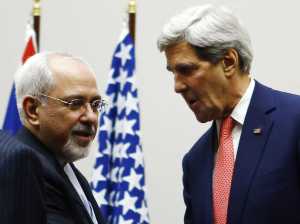First they came for Cuba. Then they came for Iran.



Frenemies
Little by little, Venezuela’s supposed “allies” are acting against her interests by reaching agreements with the “imperialist” powers of the West.
On the heels of Cuba’s rapprochement with the US, today we learn that world powers have struck a deal with Iran that would lift sanctions on oil exports in exchange for limits on Iran’s nuclear program.
The media is reporting that oil prices are falling on the heels of the announcement. Iran is widely expected to begin selling large amounts of oil once sanctions are lifted, which could come soon.
Here is the WSJ:
Even once Iran gets new oil flowing, it will have to sell it in a global market roiled by the rapid growth of U.S. oil production. All that added supply has helped set off a price war with producers scrambling to keep traditional customers and find new ones. Iran will have to move aggressively to win back market share, say traders and analysts.
Reuters says the drop may not be as big as feared:
Front-month Brent crude futures LCOc1 were 35 cents lower at $57.50 a barrel by 1245 GMT (8:45 a.m. EDT), off a session low of $56.43 a barrel. U.S. crude CLc1 was trading down 8 cents at $52.12 per barrel after declining earlier to $50.38.
“A lot of people had expected the deal. After an initial move the market reached an equilibrium as a lot was already priced in,” Simon Wardell, analyst at Global Insight, said.
Bloomberg was equally cautious:
Oil was 0.6 percent lower in New York after dropping as much as 2.5 percent earlier.Iran’s agreement to curb its nuclear program in return for the removal of sanctions is “the first step on an arduous path,” according to ING Bank NV. It will enable Iran to restore about 500,000 barrels a day of oil exports by mid-2016, Commerzbank AG estimates.
“A substantial return of Iranian oil to the market still looks to be a long and winding road,” Harry Tchilinguirian, head of commodity markets strategy at BNP Paribas SA, said in a report.
As with everything related to oil markets, it’s wait-and-see. However, the trend does not look good for Venezuela’s financial stability. No news yet on how Venezuelan bonds are performing.
Caracas Chronicles is 100% reader-supported.
We’ve been able to hang on for 22 years in one of the craziest media landscapes in the world. We’ve seen different media outlets in Venezuela (and abroad) closing shop, something we’re looking to avoid at all costs. Your collaboration goes a long way in helping us weather the storm.
Donate




